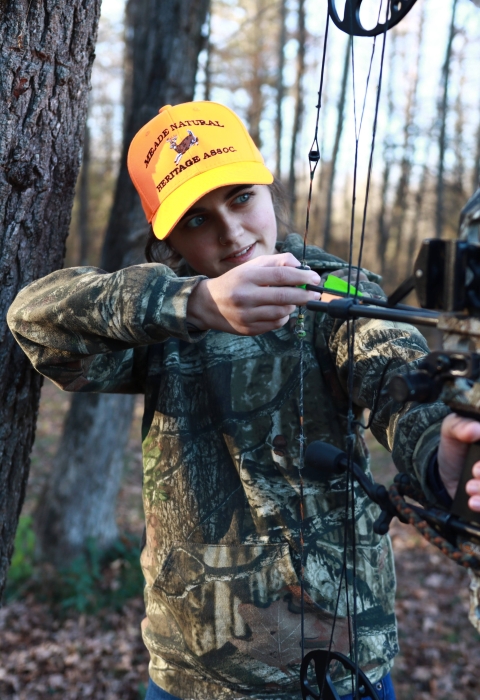U.S. Fish and Wildlife Service Director Dan Ashe today announced the agency will expand fishing and hunting opportunities on 21 refuges throughout the Service’s National Wildlife Refuge System. The final rule also modifies existing refuge-specific regulations for more than 100 additional refuges and wetland management districts.
Hunting will be available for the first time on Tualatin River National Wildlife Refuge in Oregon. Fishing will be offered for the first time on four national wildlife refuges in North Dakota: Ardoch Refuge, Lake Alice Refuge, Rose Lake Refuge and Silver Lake Refuge.
“The National Wildlife Refuge System is a national treasure that conserves millions of acres of wildlife habitat and provides Americans with unparalleled opportunities to hunt, fish and experience the wonders of the natural world,” said Ashe. “By expanding those opportunities, we are enhancing the lives of millions of Americans, stimulating the national economy to which hunting and fishing contribute significantly, and generating much needed additional funding for wildlife conservation.”
More than 560 national wildlife refuges and 38 wetland management districts make up the National Wildlife Refuge System. There is a refuge within an hour’s drive from most major metropolitan areas. The Service manages refuge hunting and fishing programs to ensure sustainable wildlife populations, while offering traditional wildlife-dependent recreation on public lands.
Under the National Wildlife Refuge System Improvement Act of 1997, the Service permits hunting and fishing along with four other types of wildlife-dependent recreation when they are compatible with an individual refuge’s purpose and mission. Hunting, within specified limits, is now permitted on 336 wildlife refuges. Fishing is now permitted on 275 wildlife refuges.
Hunting, fishing and other outdoor activities on refuges help stimulate the economy and generate funding for wildlife conservation. The Service’s report Banking on Nature shows that refuges pumped $2.4 billion into the economy in 2013 and supported more than 35,000 jobs. More than 47 million people visit refuges every year.
The Service’s final rule opens the following refuge to hunting for the first time:
Oregon
- Tualatin River National Wildlife Refuge: Open to migratory bird hunting (youth only).
The Service’s final rule opens the following refuges to sport fishing for the first time:
North Dakota
- Ardoch National Wildlife Refuge: Open to sport fishing.
- Lake Alice National Wildlife Refuge: Open to sport fishing.
- Rose Lake National Wildlife Refuge: Open to sport fishing.
- Silver Lake National Wildlife Refuge: Open to sport fishing.
In addition, the Service expands hunting and sport fishing on the following refuges:
California
- Sacramento River National Wildlife Refuge: Expand big game hunting. The refuge is already open to migratory bird hunting, upland game hunting and sport fishing.
Delaware
- Prime Hook National Wildlife Refuge: Expand migratory bird hunting, upland game hunting and big game hunting. The refuge is already open to sport fishing.
Florida
- St. Marks National Wildlife Refuge: Expand upland game hunting and big game hunting. The refuge is already open to migratory bird hunting and sport fishing.
- Merritt Island National Wildlife Refuge: Add big game hunting. The refuge is already open to migratory bird hunting and sport fishing.
Illinois
- Great River National Wildlife Refuge, IL and MO: Expand upland game hunting and big game hunting. The refuge is already open to migratory bird hunting and sport fishing.
- Two Rivers National Wildlife Refuge, IL and MO: Expand migratory bird hunting and big game hunting. The refuge is already open to upland game hunting and sport fishing.
Indiana
- Patoka River National Wildlife Refuge and Management Area: Expand migratory bird hunting, upland game hunting, big game hunting and sport fishing.
Iowa
- Northern Tallgrass Prairie National Wildlife Refuge, IA and MN: Expand migratory bird hunting, upland game hunting and big game hunting.
Louisiana
- Bayou Cocodrie National Wildlife Refuge: Expand upland game hunting and big game hunting. The refuge is already open to migratory bird hunting and sport fishing.
Michigan
- Seney National Wildlife Refuge: Expand migratory bird hunting, upland game hunting and big game hunting. The refuge is already open to sport fishing.
Minnesota
- Minnesota Valley National Wildlife Refuge: Expand upland game hunting. The refuge is already open to migratory bird hunting, big game hunting and sport fishing.
- Northern Tallgrass Prairie National Wildlife Refuge, IA and MN: Expand migratory bird hunting, upland game hunting and big game hunting.
Missouri
- Great River National Wildlife Refuge, IL and MO: Expand upland game hunting and big game hunting. The refuge is already open to migratory bird hunting and sport fishing.
- Mingo National Wildlife Refuge: Expand big game hunting. The refuge is already open to migratory bird hunting, upland game hunting and sport fishing.
- Swan Lake National Wildlife Refuge: Expand migratory bird hunting, upland game hunting and big game hunting. The refuge is already open to sport fishing.
- Two Rivers National Wildlife Refuge, IL and MO: Expand migratory bird hunting and big game hunting. The refuge is already open to upland game hunting and sport fishing.
New Jersey/New York
- Wallkill River National Wildlife Refuge: Add upland game hunting and expand big game hunting. The refuge is already open to migratory bird hunting and sport fishing.
Oregon
- William L. Finley National Wildlife Refuge: Expand big game hunting.
Vermont
- Missisquoi National Wildlife Refuge: Expand migratory bird hunting, upland game hunting and big game hunting. The refuge is already open to sport fishing.
To view a complete list of all hunting and sport fishing opportunities on refuges, click here. The final rule will become effective upon publication in the Federal Register on August 26, 2015.
Other wildlife-dependent recreation on national wildlife refuges includes wildlife photography, environmental education, wildlife observation and interpretation. Visit www.fws.gov/refuges to learn more.

